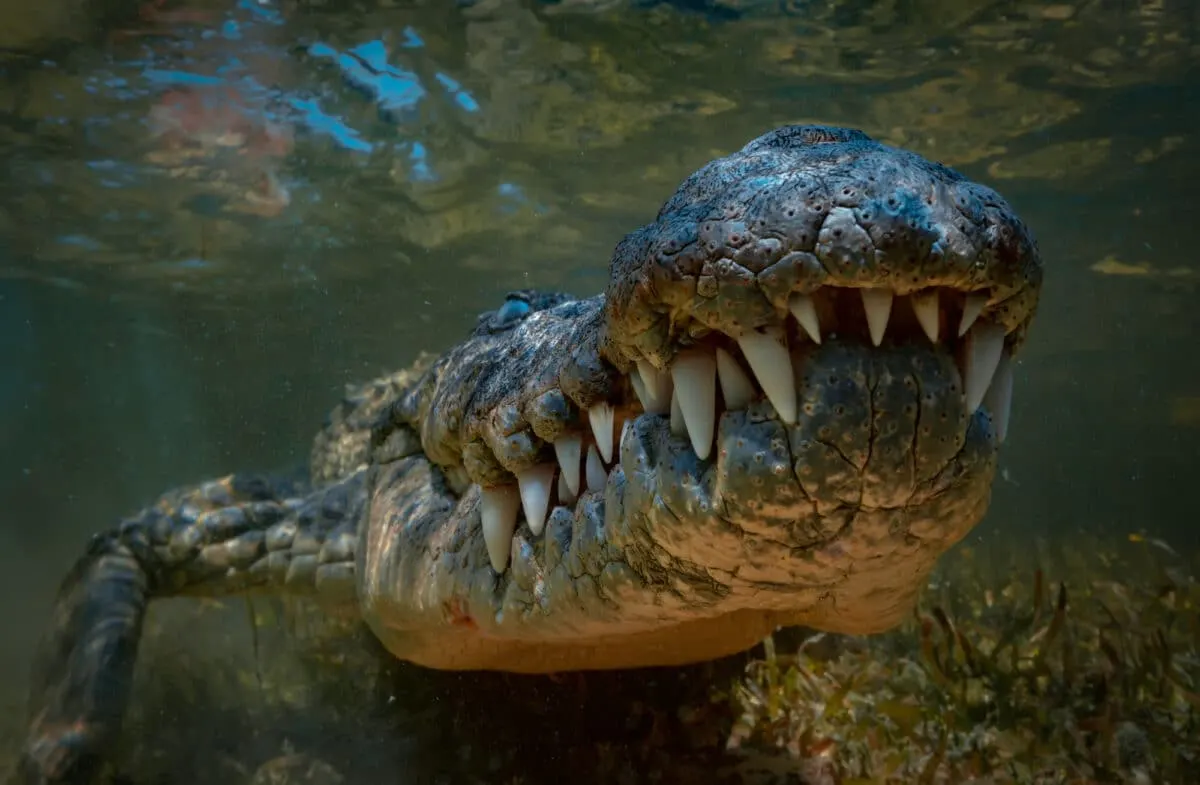Saltwater Crocodile Vs. African Rock Python – both are reptiles, and both are apex predators, but which one do you think would win in a fight?
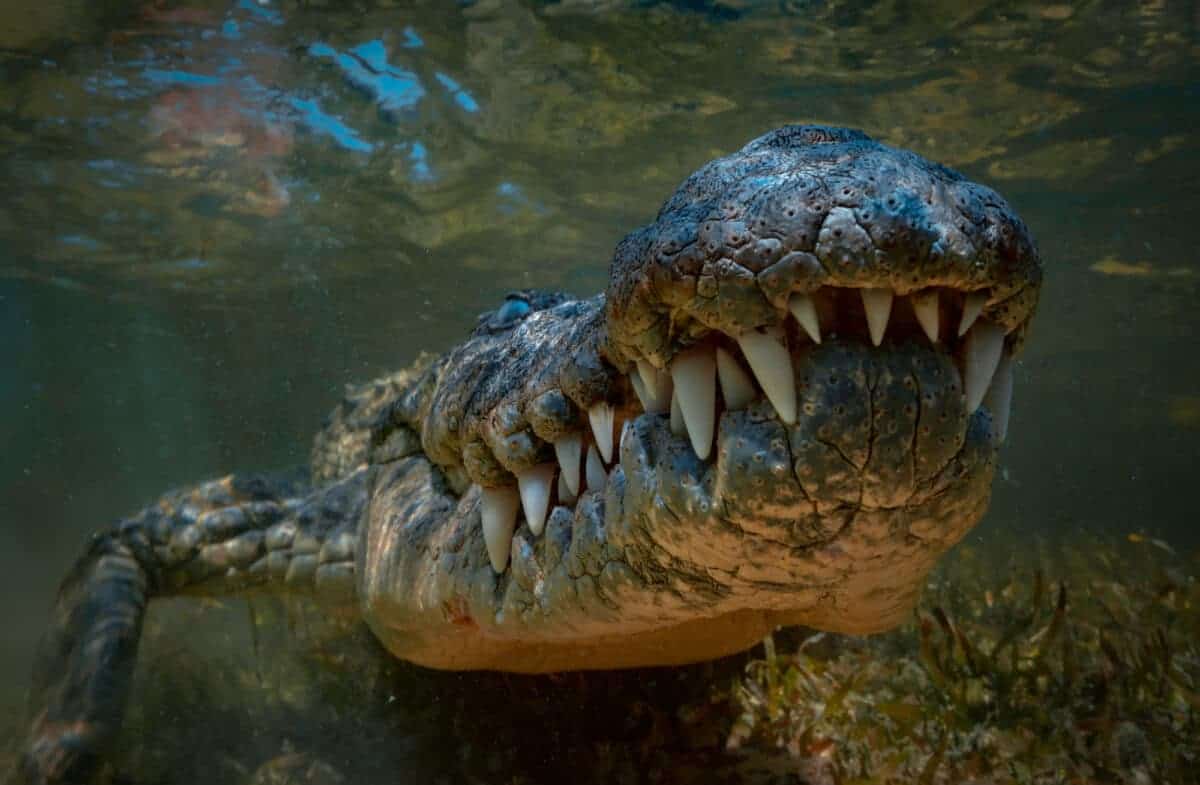
If you’re looking for an epic showdown between two of the world’s most impressive predators, look no further than a fight between a saltwater crocodile and an African rock python.
Both animals are known for their ruthless hunting tactics, armored scales, and powerful muscles that can quickly bring down prey twice their size. But which one would win in a battle to the death?
In this blog post, we’ll take an up-close look at these magnificent creatures’ anatomy and behavior, compare them to better understand each animal’s strengths and weaknesses, and answer the ultimate question: who would win?
Comparison Table
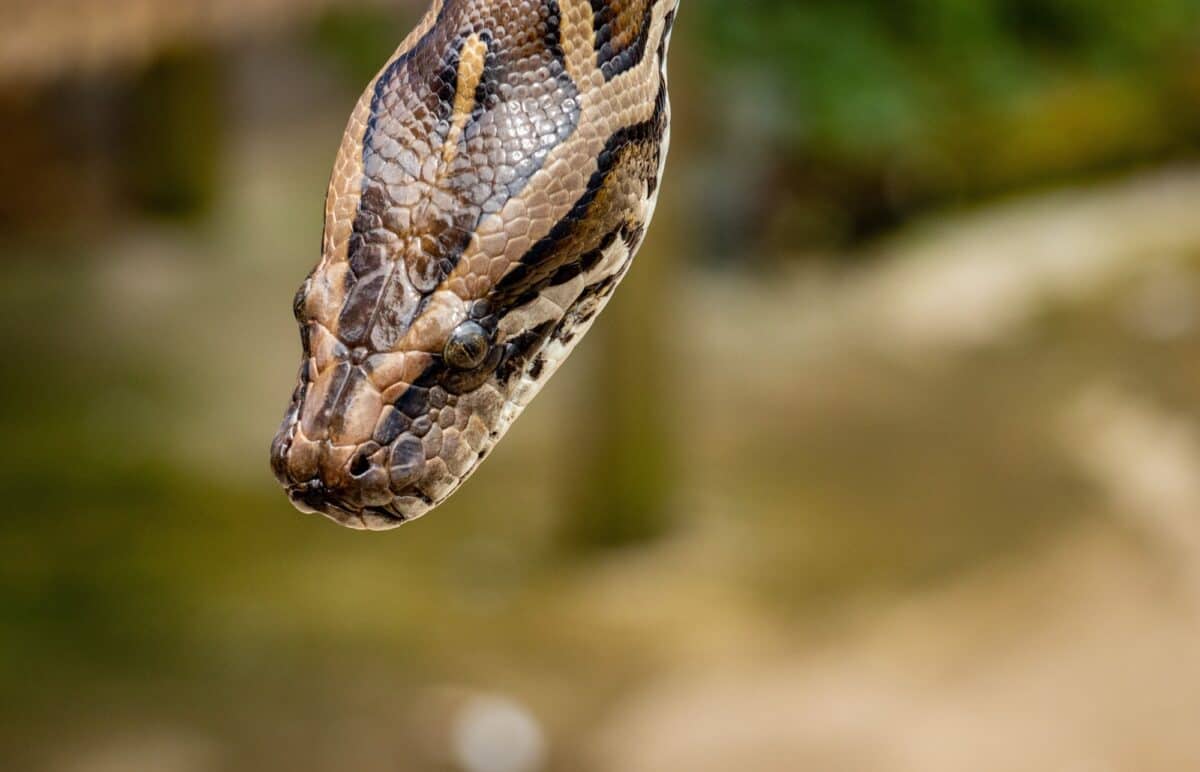
| Characteristic | Saltwater Crocodile | African Rock Python |
|---|---|---|
| Scientific Name | Crocodylus porosus | Python sebae |
| Size | Up to 7 meters long and can weigh up to 1,000 kg | Up to 6 meters long and can weigh up to 90 kg |
| Habitat | Coastal areas, estuaries, and mangrove swamps of Southeast Asia and Australia | Forests, grasslands, and wetlands of sub-Saharan Africa |
| Lifespan | Up to 70 years | Up to 30 years in the wild |
| Social Structure | Solitary animals | Solitary animals |
| Diet | Carnivorous, preying on fish, mammals, birds, and occasionally larger reptiles | Carnivorous, preying on small to medium-sized mammals, birds, and reptiles |
| Reproduction | Nest-building and egg-laying, with an incubation period of around 90-100 days | Egg-laying, with an incubation period of around 70-90 days |
| Predators | Few natural predators, but occasionally targeted by larger crocodiles and humans | Few natural predators, but occasionally targeted by large mammals and birds of prey |
| Conservation Status | Least Concern (population stable) | Least Concern (population stable) |
Saltwater Crocodile Vs. African Rock Python: Size and Strength
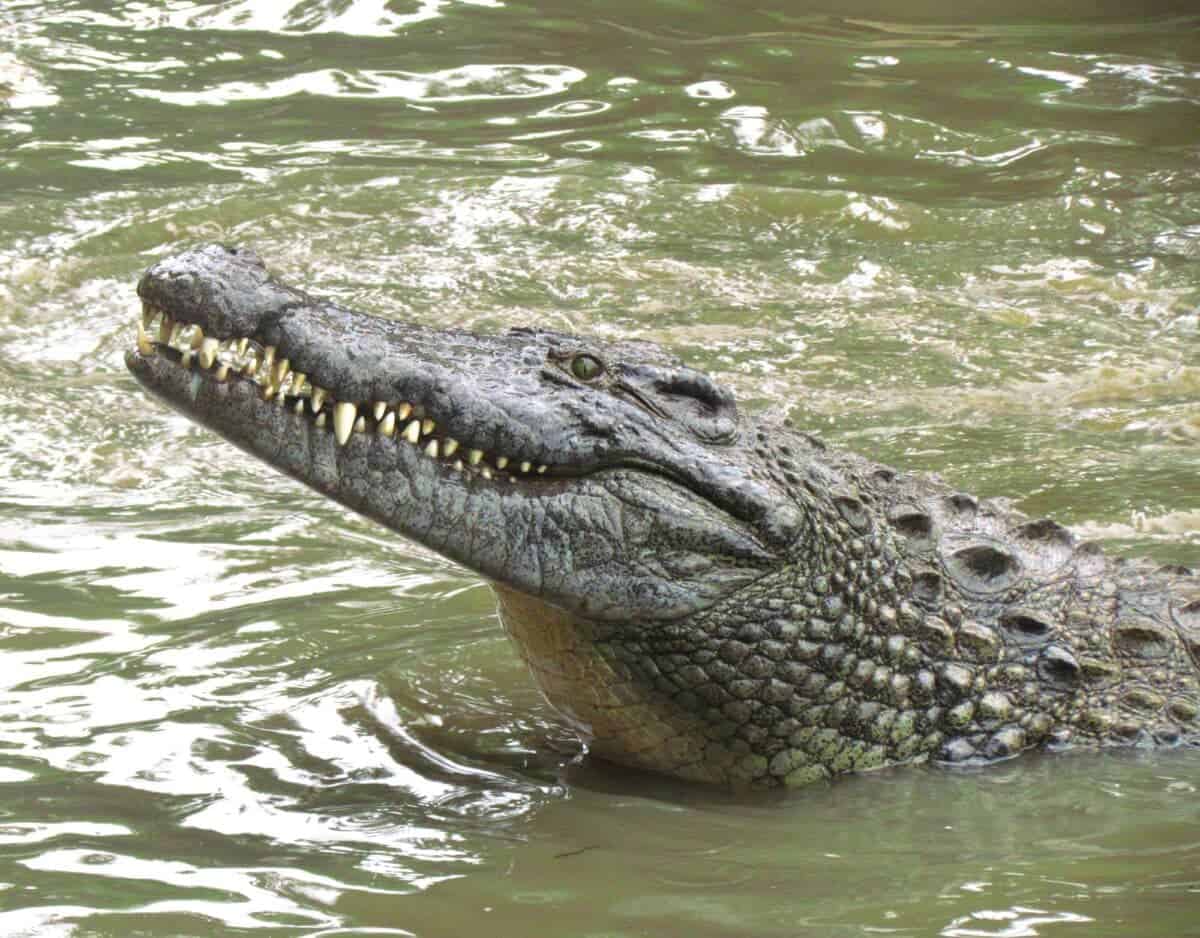
Regarding size and strength in the animal kingdom, few species can rival the saltwater crocodile and the African rock python. These two predators are apex predators in their respective habitats, each boasting impressive physical attributes.
The saltwater crocodile, the largest extant reptile in the world, can grow up to 23 feet in length and weigh more than a ton. Its powerful jaws can exert a bite force of over 3,000 lbs, and its sheer bulk allows it to overpower almost any prey.
On the other hand, the African rock python can reach lengths of up to 20 feet and weigh over 100 lbs. Although it isn’t as massive as the saltwater crocodile, it possesses incredible strength and can constrict prey with a force of up to 90 lbs per square inch. Ultimately, both animals are fearsome hunters in their own right.
Read our post where the shoebill stork takes on a crocodile.
Saltwater Crocodile Vs. African Rock Python: Habitat
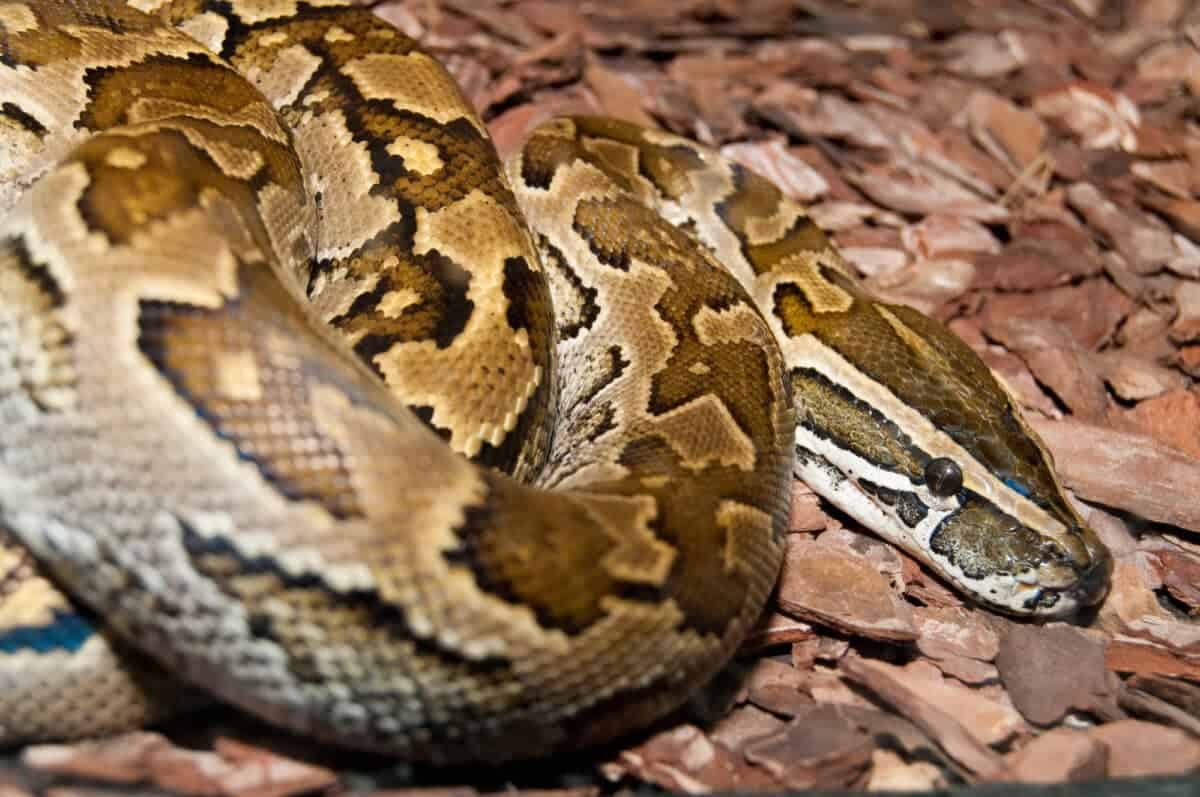
The saltwater crocodile, found in the East Indian and South Pacific Oceans, occupies both saltwater and freshwater ecosystems. Their habitats range from rivers and estuaries to coastal areas. As a result, they have become equipped to manage the transition between freshwater and marine environments. This adaptability is a result of their broad diet, which includes fish and mammals, extending their range from inland rainforests to open oceans.
In contrast, the African rock python is primarily a terrestrial creature inhabiting Sub-Saharan Africa. The habitats of this species span across grasslands, rocky regions, and rainforests. This non-venomous constrictor uses terrestrial features such as rocks and soil to regulate its body temperature. They have been observed to utilize various landforms, such as rocky outcrops and burrows, for shelter.
While both these reptiles are at the apex of their respective ecosystems, their habitats reflect vastly different ecological adaptations. The saltwater crocodile’s dual freshwater and marine habitats contrast with the African rock python’s terrestrial-oriented environment.
Read our comparison of two snake species here.
How Do They Hunt for Prey?
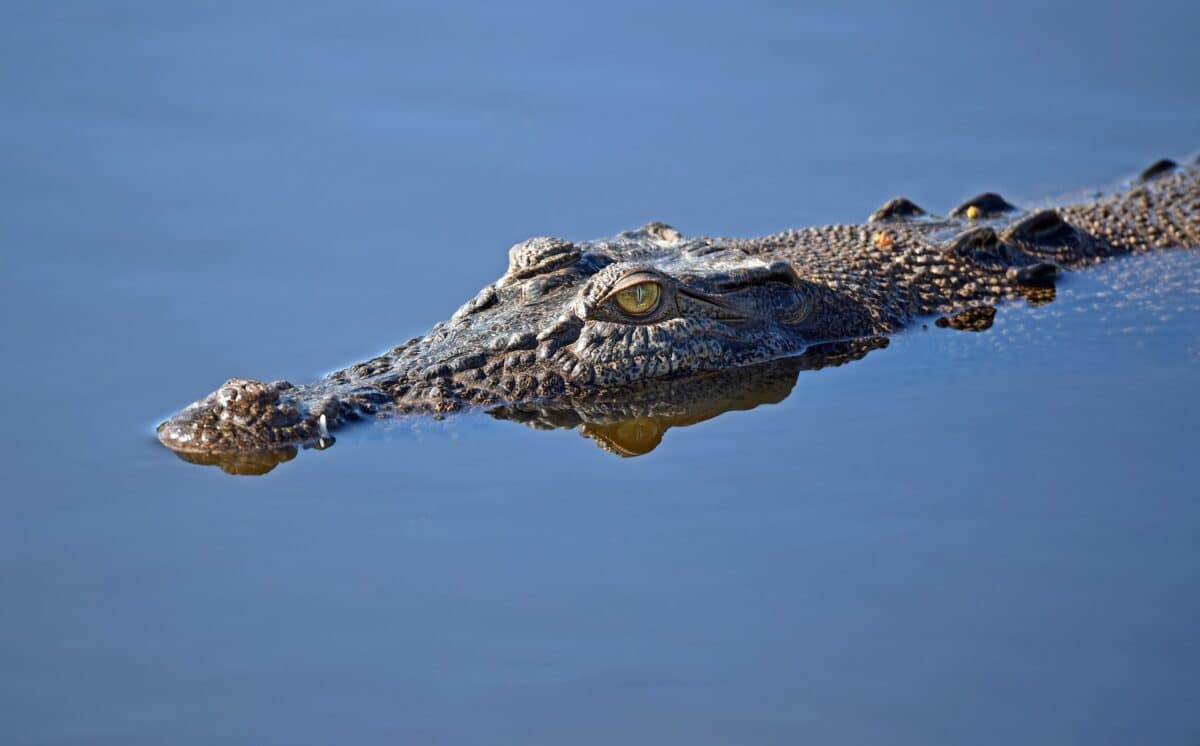
Hunting is a skill that requires meticulous planning and execution. These apex predators have unique methods of successfully targeting their prey.
Saltwater crocodiles, the giant living reptiles, have a reputation for their formidable power on both land and in water.
One of their primary techniques is ambush predation. Saltwater crocodiles patiently wait submerged in water, concealing their massive bodies, with only their eyes and nostrils above the surface. Then, they ambush their prey with a deadly bite, dragging their victims into the water to drown them.
On the other hand, African rock pythons possess different tactics for squeezing their prey to death. These skillful predators can tackle prey twice their size by coiling their muscular bodies around their victims, cutting off the air supply and causing suffocation.
When hunting, African rock pythons typically lie in wait, camouflaged amidst vegetation or rocky crevices. When an opportunity arises, they quickly strike and coil their muscular bodies around their victim, constricting with immense force until their prey suffocates. Their ability to swallow large prey whole, such as antelopes or crocodiles, makes them formidable predators in their environment.
Saltwater Crocodile Vs. African Rock Python: Defenses Against Predators
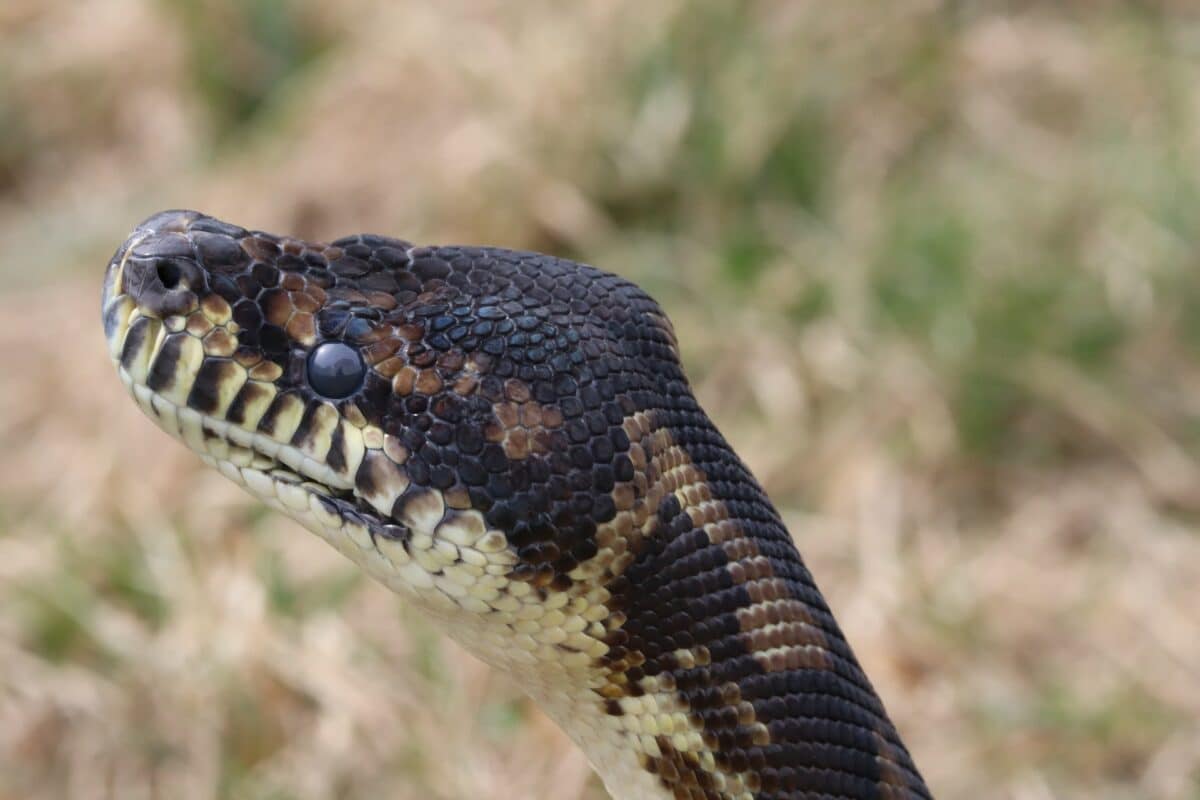
In the wild, survival of the fittest is the number one rule. Predators and prey constantly evolve their methods of attack and defense to stay alive.
The scaly skin of Saltwater Crocodiles acts as a natural armor, providing protection against external injuries. Additionally, they have a remarkable ability to blend into their surroundings, making it difficult for predators or prey to spot them. When threatened, saltwater crocodiles rely on their immense size and strength to deter adversaries. They can deliver powerful bites and strikes with their muscular tails, capable of incapacitating or even killing potential attackers.
Similarly, the African rock python has developed its own arsenal of defenses. Their large size acts as a deterrent, discouraging potential predators from approaching. Their highly muscular bodies allow them to constrict tightly around attackers, providing a means of defense against threats. Additionally, the python’s camouflaged skin helps it to remain inconspicuous, avoiding detection.
An Overview of Their Strengths
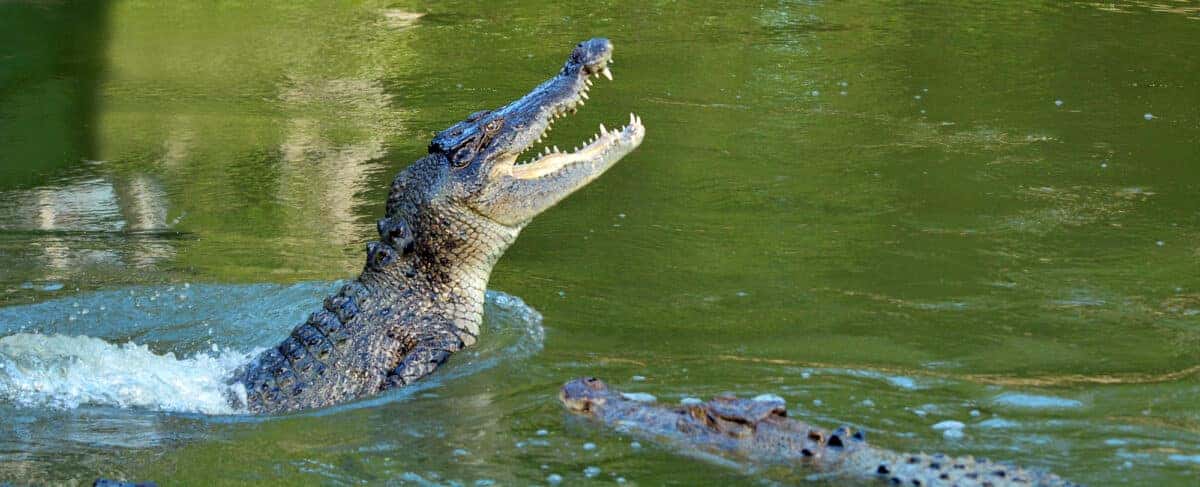
| Strengths | Saltwater Crocodile | African Rock Python |
|---|---|---|
| Size and Strength | Large size and powerful build | Impressive strength relative to body size |
| Jaw Strength | Exerts a bite force of over 3,000 lbs | Ability to constrict prey with a force of up to 90 lbs per square inch |
| Ambush Predation | Masters of stealth and surprise attacks | Strikes quickly and coils around prey to constrict and suffocate |
| Adaptability in Habitat | Can inhabit both saltwater and freshwater ecosystems | Well-adapted to diverse terrestrial environments |
| Powerful Hunting Technique | Utilizes powerful jaws and tail to subdue prey | Constricts tightly around prey, suffocating them |
| Wide Range of Prey | Preys on fish, mammals, birds, and occasionally reptiles | Feeds on small to medium-sized mammals, birds, and reptiles |
| Excellent Camouflage | Blend into surroundings, making them difficult to detect | Camouflaged skin helps with ambush and surprise attacks |
| Formidable Defense Tactics | Scaly armor provides protection against external injuries | Coils tightly around attackers, discouraging potential predators |
| Hunting Adaptations | Can hunt in both aquatic and terrestrial environments | Specialized for hunting on land, utilizing ambush and stealth |
Saltwater Crocodile Vs. African Rock Python: Diet
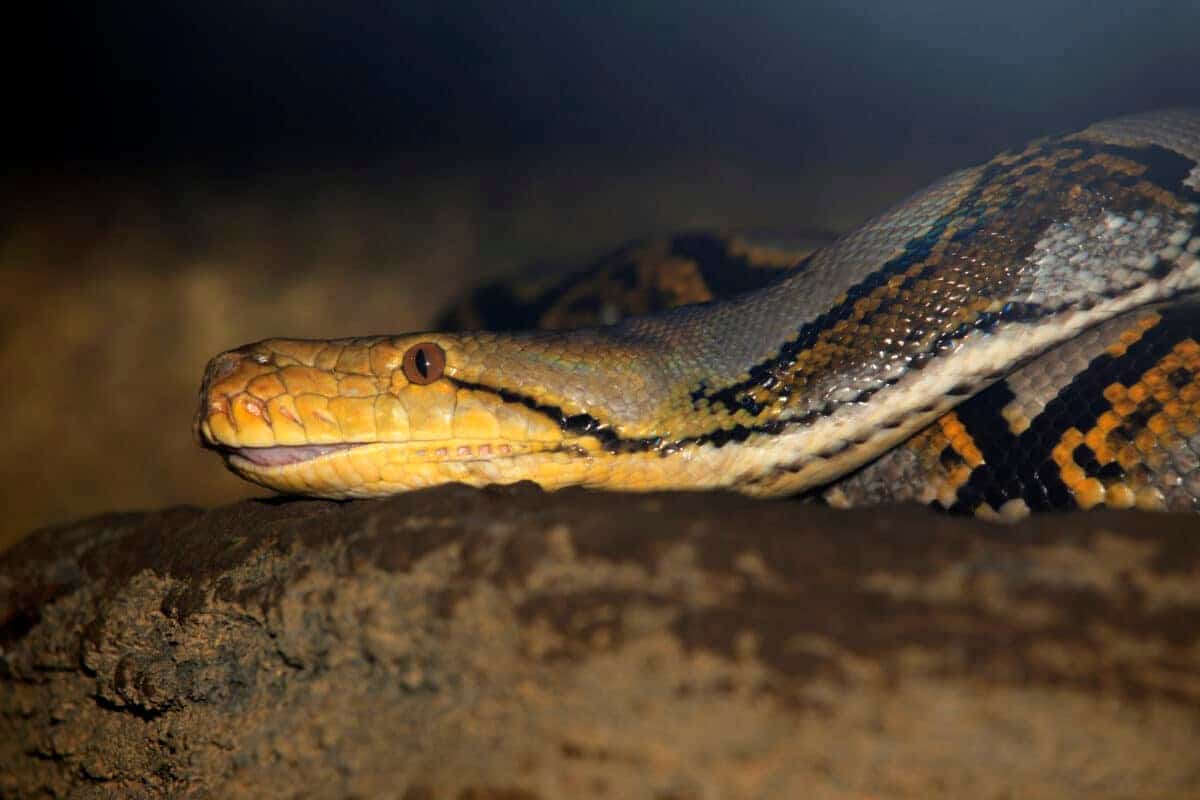
The saltwater crocodile and the African rock python have distinct preferences regarding diet.
The saltwater crocodile is known for being a skilled predator with a hearty appetite. These crocodiles are ambush predators, waiting for their prey before lunging forward to snatch their next meal. A typical saltwater crocodile diet consists of fish, birds, and mammals – including other reptiles.
On the other hand, the African rock python is a constrictor – meaning it tightens its coils around its prey until they suffocate. These pythons have been known to eat various animals, including rodents, birds, and even antelope.
How Are Saltwater Crocodile and African Rock Python Affected by Human Activity
Human activity significantly impacts the conservation status of numerous species, including the saltwater crocodile and the African rock python. However, these two species are affected differently by human activities.
Saltwater crocodiles are threatened by habitat loss, hunting, and the illegal trade of their skin, which is highly valued in the fashion industry. On the other hand, African rock pythons are hunted for their meat and skin. Still, they are also impacted by the destruction of their natural habitat due to deforestation and urbanization.
The conservation efforts for both species require a combination of measures, including habitat protection, regulating hunting and trade, and educating local communities about the need to preserve these animals and their ecosystems.
The Final Say
In a hypothetical battle between a saltwater crocodile and an African rock python, determining a clear winner is challenging. Both species possess unique strengths and adaptations that make them formidable predators in their respective environments.
The saltwater crocodile’s massive size, powerful jaws, and ability to hunt both in water and on land provide it with a significant advantage. On the other hand, the African rock python’s constriction method, incredible strength, and ability to overpower prey make it a formidable opponent.
Regarding human interaction, better conservation measures must be implemented for both species as they are currently listed as vulnerable on the IUCN list due to human activities such as habitat destruction, poaching, and overhunting. With better protection, these incredible animals will have a much greater chance of thriving long into the future!
Thank you for reading this article about the Saltwater Crocodile Vs. African Rock Python! The animal kingdom is full of ferocious predators – take a look at the Sumatran Tiger Vs. Nile Monitor, Spotted Gully Shark Vs. Octopus, or Cougar Vs. Wolf.
Join our Forum for free today!

- Signs Of Coyotes Visiting Your Property - July 23, 2024
- Beware Of The Rabid Wolf Spider In The United States - July 23, 2024
- 12 Flowers & The Beautiful Birds They’ll Attract To Your Yard - July 23, 2024

